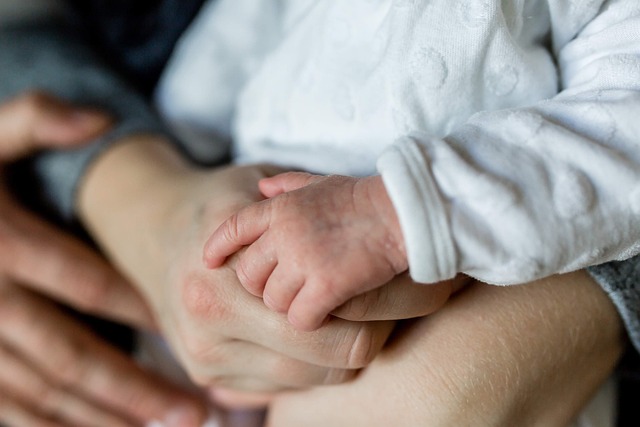Multnomah County, Oregon, prioritizes child advocacy through a robust system coordinating parents, guardians, social workers, and lawyers for comprehensive assessments and tailored interventions. Skilled family law professionals offer crucial legal assistance in resolving disputes, ensuring fairness and best interests of the child. Effective case management, mediation, and holistic advocacy methods cultivate transparency and proactive issue resolution, leading to favorable outcomes for at-risk youth. Legal Aid's expertise has successfully reunited families and secured positive results in child welfare cases.
In Multnomah County, child welfare disputes can be complex and emotionally charged. This comprehensive guide explores effective strategies for resolving these challenges through legal assistance. We delve into understanding the intricacies of child welfare disputes local to the county, highlighting the pivotal role of legal aid in facilitating resolutions. By examining parents’ rights, case management techniques, mediation as an alternative dispute resolution method, and real-life success stories, this article empowers families navigating Multnomah County’s child advocacy system.
- Understanding Child Welfare Disputes in Multnomah County
- The Role of Legal Assistance in Resolution
- Navigating the System: Parents' Rights and Protections
- Effective Strategies for Case Management and Advocacy
- Mediation as an Alternative Dispute Resolution Method
- Success Stories: How Legal Aid Helped Families
Understanding Child Welfare Disputes in Multnomah County

Child welfare disputes in Multnomah County, Oregon, involve complex legal and emotional issues centered around the well-being of children. These disputes often arise when a child is considered at risk or in need of protection from their family or caregivers. The county’s child advocacy system is designed to navigate these challenges, ensuring that every child’s unique circumstances are thoroughly assessed and appropriate interventions are implemented.
Multnomah County plays a pivotal role in facilitating communication between various stakeholders, including parents, guardians, social workers, and legal professionals. The county’s dedicated child advocacy teams work collaboratively to gather evidence, conduct interviews, and make informed decisions that prioritize the child’s safety and long-term interests. Effective legal assistance is integral to this process, providing guidance throughout investigations, court proceedings, and alternative dispute resolution methods.
The Role of Legal Assistance in Resolution

In resolving child welfare disputes, legal assistance plays a pivotal role, particularly in regions like Multnomah County where child advocacy is a top priority. Legal professionals skilled in family law and child welfare policies are instrumental in navigating complex procedures and ensuring fairness for all parties involved. They guide clients through the intricate process, explaining their rights and obligations, and helping them make informed decisions.
By providing legal counsel, these professionals can advocate for the best interests of the child, which is paramount in such disputes. They offer strategic advice, draft necessary documents, and represent clients in court, aiming to reach amicable resolutions or successful outcomes in trials. This support is invaluable, especially as it helps families navigate a system that can be overwhelming, ultimately leading to more positive and lasting resolutions for children involved in welfare proceedings.
Navigating the System: Parents' Rights and Protections

Navigating the complex child welfare system can be overwhelming for parents, especially in moments of dispute. In Multnomah County, parents have specific rights and protections that are crucial to understanding when involved with child advocacy services. These rights ensure fair treatment and a thorough exploration of alternatives before any formal proceedings begin.
Knowing their entitlements empowers parents to actively participate in decisions affecting their children’s welfare. This includes the right to legal representation, access to case workers, and the opportunity to challenge or appeal decisions made by Multnomah County child advocacy teams. Understanding these protections is vital for parents to effectively navigate the system and ensure their voices are heard throughout the dispute resolution process.
Effective Strategies for Case Management and Advocacy

In the realm of child welfare, effective case management and advocacy are paramount to ensuring the best outcomes for vulnerable youth. For disputes involving Multnomah County child advocacy, a structured approach is imperative. This includes comprehensive documentation, regular communication with all stakeholders, and meticulous tracking of key milestones and decisions. By implementing these strategies, legal professionals can navigate complex cases with precision, fostering an environment that promotes transparency and proactive problem-solving.
Advocacy plays a pivotal role in defending the rights of children and connecting them with necessary resources. For Multnomah County child advocacy cases, advocates should be well-versed in relevant laws and policies, while also building strong relationships with families, social workers, and community organizations. This collaborative approach ensures that every aspect of a child’s needs is addressed holistically, ultimately leading to more positive resolutions and improved long-term outcomes.
Mediation as an Alternative Dispute Resolution Method

Mediation serves as a powerful tool within the spectrum of alternative dispute resolution methods, offering a collaborative approach to resolving contentious issues in child welfare cases. In Multnomah County, where child advocacy is a top priority, mediation provides a safe and structured environment for families, legal professionals, and social workers to engage in open dialogue. This process facilitates a mutual understanding and agreement between all parties involved, ultimately aiming to reach a resolution that aligns with the best interests of the child.
By employing mediation, stakeholders can navigate complex situations more effectively. Trained mediators help facilitate conversations, ensuring every voice is heard while promoting empathy and compromise. This method allows for a more personalized approach compared to traditional litigation, fostering an atmosphere where creative solutions can emerge. As a result, mediation not only expedites dispute resolution but also strengthens the support system surrounding vulnerable children in Multnomah County.
Success Stories: How Legal Aid Helped Families

In many cases, families facing child welfare disputes in Multnomah County have found hope and resolution through Legal Aid’s dedicated services. These success stories highlight the invaluable impact of legal assistance on vulnerable families. For instance, consider a family where a child was mistakenly placed in protective custody due to miscommunication. With Legal Aid’s intervention, they were able to navigate the complex legal system, clear misunderstandings, and ensure the safe return of their child.
The organization’s expertise in Multnomah County child advocacy played a pivotal role in advocating for the family’s rights. Through proactive representation, they challenged inaccurate assumptions, presented compelling evidence, and ultimately secured a favorable outcome. This success not only reunited the family but also served as a beacon of light, demonstrating that access to legal assistance can make all the difference in securing the best interests of children while protecting their families’ rights.






